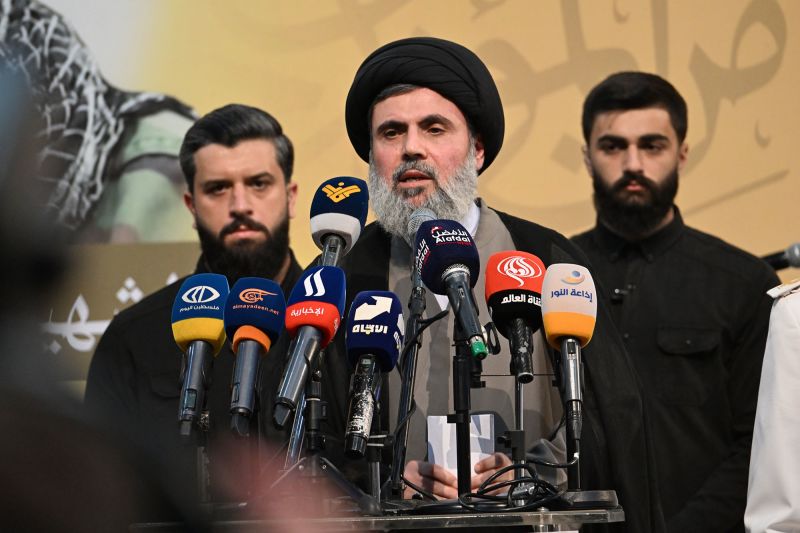
Who is Hashem Safieddine, rumored to be the next Hezbollah chief?
The fate of a possible successor to Hezbollah leader Hassan Nasrallah is unclear following an Israeli airstrike on Beirut.
Safieddine is a maternal cousin of Nasrallah – the two studied in Iran together in the early 1980s. Just like Nasrallah, Safieddine is a staunch critic of Israel and the West, with deep alliances with the Iranian leadership.
Safieddine served as head of Hezbollah’s executive council and, until his predecessor’s death, was seen as one of the most likely heirs to the organization’s highest-ranking seat. The group has yet to name a successor to Nasrallah.
The executive council is one of five bodies that make up the Shura Council, which is the organization’s decision-making body. The executive council oversees political matters, as opposed to the Jihad Council which is the group’s military body, which Safieddine is a member of.
Safieddine has previously spoken of the “strong relationship” between Hezbollah and Iran’s Revolutionary Guard Corps (IRGC), and especially Iranian general Qasem Soleimani, who was killed in US airstrike at Baghdad airport in 2020. Safieddine’s son is married to Soleimani’s daughter.
The Shiite cleric was born in 1964 in the southern Lebanese village of Deir Qanoun En Nahr. Like the late Hezbollah leader, he wears the black turban signaling that he is a “Sayyid,” a Shiite honorific title denoting descent from Prophet Mohammed.
The 60-year-old cleric has had a visible presence across Hezbollah’s political stage, especially over the past year. Throughout the Gaza war, Safieddine would make statements denouncing Israel’s actions in the enclave and on his country’s southern border.
Nasrallah “started tailoring positions for him within a variety of different councils within Lebanese Hezbollah. Some of them were more opaque than others. They’ve had him come, go out and speak,” Phillip Smyth, an expert who studies Iran-backed Shiite militias, told Reuters.
Speaking at the funeral ceremony of one of the slain Hezbollah members in May, Safieddine boasted that his group is nonetheless strong and resilient, prioritizing – along with their Iranian allies – the Palestinian cause and the need to liberate the Palestinian people.
Following the back-to-back explosions that targeted Hezbollah pagers and walkie-talkies, Safieddine said that his organization “will not back down until the end.”
Saffiedine has long been a hawkish critic of US policy, which he sees as aiding and abetting Israel’s actions in Gaza and southern Lebanon.
In 2021, he accused Washington of “interfering” in Lebanese domestic politics, saying that “American tyranny” is “sabotaging” the region’s nations, citing Iraq and Afghanistan among examples.
The United States designated Hezbollah a foreign terrorist organization in 1997, and in 2017 designated Safieddine a foreign terrorist.
